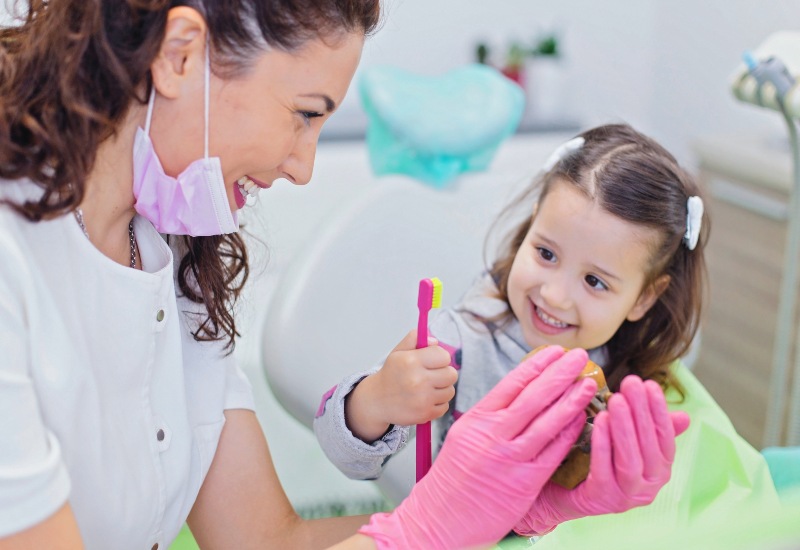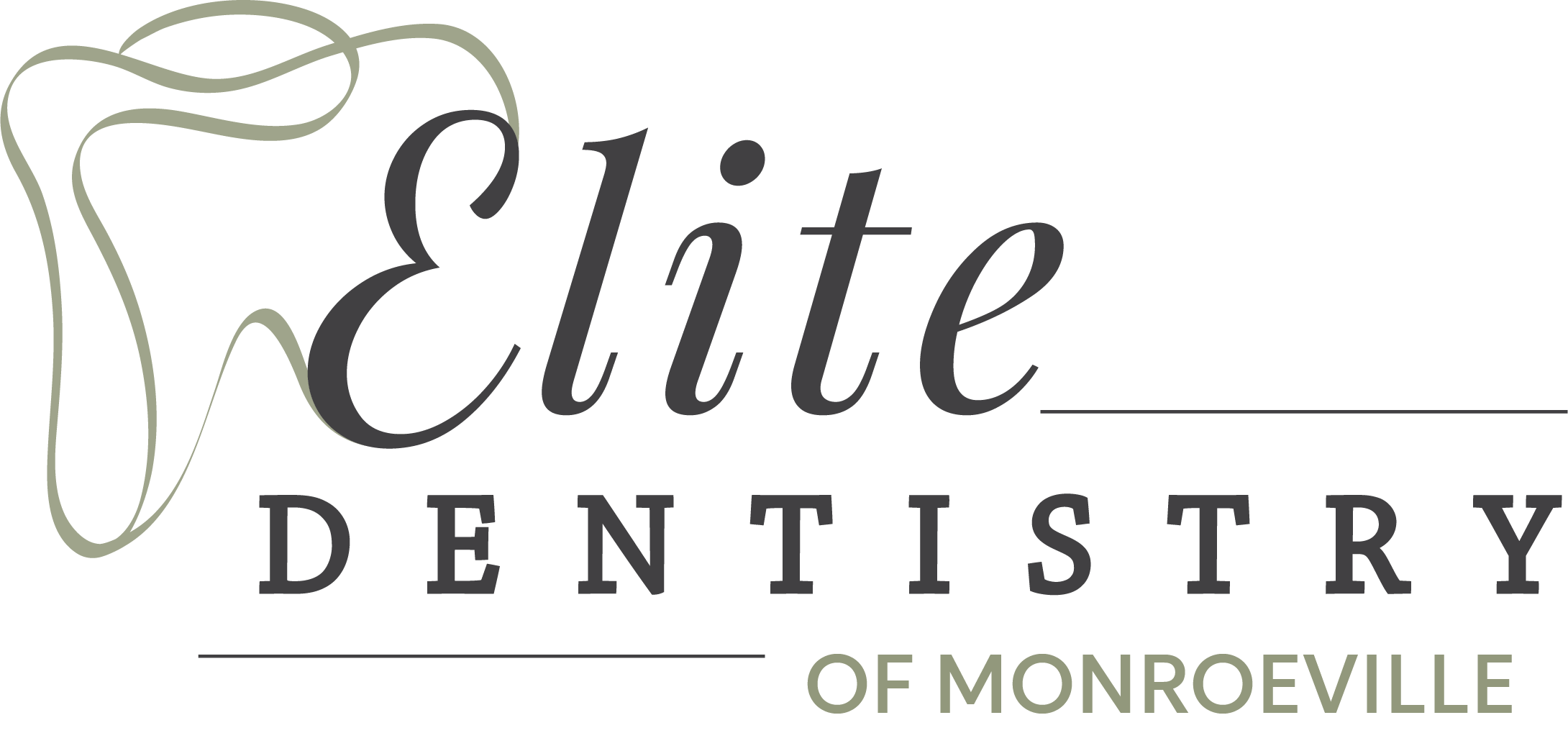When Should Kids See the Dentist for the First Time? A Parent’s Guide to Healthy Smiles
Your Child’s First Dental Visit
Regarding your child’s first dental visit, Elite Dentistry of Monroeville can help you set the stage for a lifetime of good oral health. Your child’s first dental visit is a significant milestone. Knowing when to go, what to expect, and how to prepare can make this a positive and stress-free experience for you and your little one. As experts in pediatric dentistry, our team is ready to provide the highest level of care for your child. Learn more below about making your child’s first dental visit a success.

Why Your Child’s First Dental Visit Is Crucial
The first dental visit is the foundation for a positive relationship with dental care. Early appointments allow your child to become comfortable in a dental office environment, reducing the likelihood of future dental anxiety. A pediatric dentist can spot potential issues with tooth alignment, jaw development, or gum health long before they become serious problems. Starting dental care early shows your child that visiting the dentist is a standard and beneficial part of staying healthy. This initial meeting is also a valuable educational opportunity for you as a parent.
What Is a Pediatric Dentist & Why Does It Matter?
A pediatric dentist offers expert dental treatment in a setting designed to make young patients feel at ease. Here’s how their training and approach help create a positive foundation for lifelong dental habits:
- Specialized Training—A pediatric dentist completes 2–3 additional years of education after dental school. This training covers treating infants, children, teens, and special needs patients.
- Child-Friendly Environment—Office designs keep kids in mind, featuring bright colors, toys, and smaller tools. This layout helps reduce fear and makes visits more enjoyable.
- Expert Communication—A pediatric dentist understands child development and psychology. They use simple, reassuring language to help children feel safe and understood.
- Targeted Dental Care—Pediatric dentists manage unique issues like thumb-sucking or baby bottle tooth decay. They support healthy development and encourage positive dental habits.
Best Age for First Dental Visit
Your child’s first dental visit should happen when their first tooth appears or by their first birthday. Early care supports healthy development and helps prevent future issues. Here’s why the American Academy of Pediatric Dentistry and the American Dental Association support this important milestone:
- Protect Primary Teeth—Baby teeth are vital for chewing, speech, and guiding permanent teeth into place. Caring for them early lays the groundwork for lifelong oral health.
- Catch Issues Early—Preventative dentistry helps us assess risks for cavities or developmental concerns. Addressing problems earlier makes them easier and less costly to treat.
- Focus on Prevention—You’ll learn how to clean your child’s teeth, manage habits, and encourage good hygiene. This guidance helps build strong, healthy habits from the start.
Signs Your Child Needs to See a Dentist Sooner
While the “first tooth or first birthday” guideline is a great starting point, some children may need to see a dentist sooner. If you notice anything unusual, trust your instincts. Early evaluation can make a big difference. Here are signs to look for:
- Unusual Teething Issues—If teething seems excessively painful or delayed, it may signal an underlying problem. A dentist can assess the situation and offer relief options.
- Visible Tooth Discoloration—White or brown spots on baby teeth can indicate early decay. Prompt care helps prevent the issue from progressing.
- Signs of Discomfort or Sensitivity—It’s vital to address swollen gums, temperature sensitivity, or ongoing mouth pain. These symptoms may indicate emerging dental problems.
- Oral Habits and Injuries—Persistent thumb-sucking or lip-sucking can impact tooth and jaw alignment. Dental injuries like chips or knocked-out teeth need immediate attention.
What Happens During the First Dental Check-Up?
The main goal at a child’s first dental visit is to make them feel safe while laying the foundation for lifelong oral health. Here’s what happens during a child’s first dental visit:
- Comfortable First Experience—Your child may sit on your lap during a “lap-to-lap” exam. This arrangement keeps them secure while giving the dentist a clear view of their mouth.
- Gentle Oral Evaluation—The dentist will check their teeth, gums, bite, and jaw development to look for early signs of decay or other concerns.
- Optional Cleaning and Fluoride—If needed, a hygienist may gently clean your child’s teeth. Applying a fluoride treatment can help prevent cavities.
- Receive Parental Guidance—You’ll receive advice on diet, teething, pacifier habits, and brushing routines. It’s also the perfect time to ask questions about your child’s oral care.
Dental Care for Toddlers and Infants at Home
Establishing oral health habits should begin before your baby’s first tooth comes in, setting the stage for a lifetime of healthy smiles. Here are some helpful tips for dental care for toddlers and infants at home:
- Clean Gums Early—Gently wipe your baby’s gums with a clean, damp washcloth after feedings. Gum care will remove bacteria and help your child get used to daily oral care.
- Start Brushing with the First Tooth—Use a soft-bristled infant toothbrush and a tiny smear of fluoride toothpaste. Brush twice a day, especially before bedtime.
- Adjust as They Grow—Switch to a pea-sized amount of toothpaste at age three. Continue to supervise brushing to ensure proper technique.
- Support with Healthy Habits—Offer a balanced diet and limit sugary snacks and drinks. Water and nutritious foods help build strong teeth and gums.
Choosing the Right Dentist and Making Visits Less Stressful
Choosing the right dentist and preparing your child for their first visit can make all the difference in creating a positive experience. At Elite Dentistry of Monroeville, our dental team creates a warm, welcoming environment that builds trust. You can also contribute to your child enjoying an easier dental experience. Here’s how to make visits less stressful for children:
- Talk About It Positively—Describe the appointment in fun, simple terms. Use books, videos, or play “dentist” at home to help your child understand what to expect.
- Use Reassuring Language—Stay calm and confident on the day of the visit. Avoid words like “hurt” or “shot” and focus on gentle, positive explanations.
- Make It Memorable—Many dental offices offer small prizes to celebrate your child’s visit. This little reward helps create a happy, lasting impression.
Partner With Us for Your Child’s Dental Care
Elite Dentistry of Monroeville is here to provide the highest level of care for your child’s first dental visit in Monroeville, PA. A positive introduction to dentistry can lay the foundation for healthy habits that last a lifetime. Our dental team can help you prevent future problems so your child can enjoy a healthy, bright smile for years. We’re dedicated to creating a comfortable and positive experience for our practice’s youngest patients. Contact us today to schedule an appointment and give your child the gift of a healthy smile.
Frequently Asked Questions About a Child’s First Dental Visit
Parents often have important questions about keeping their child’s smile healthy and safe. Here are a few quick answers to help you feel more confident about your child’s dental care:
- Are dental X-rays safe for my child? — Dental offices use modern digital X-ray technology that emits very low radiation levels. Lead aprons and thyroid collars also provide extra protection.
- How can I prevent cavities in my child’s baby teeth? — Brush your child’s teeth twice daily with fluoride toothpaste, ensure they eat a balanced diet low in sugar, and avoid putting them to bed with a bottle of anything other than water.
- How often should my child see the dentist? — After the first visit, it is generally recommended that your child have a dental check-up every six months. These regular visits allow the dentist to monitor their oral development, provide preventive dental care, and address any issues early.
